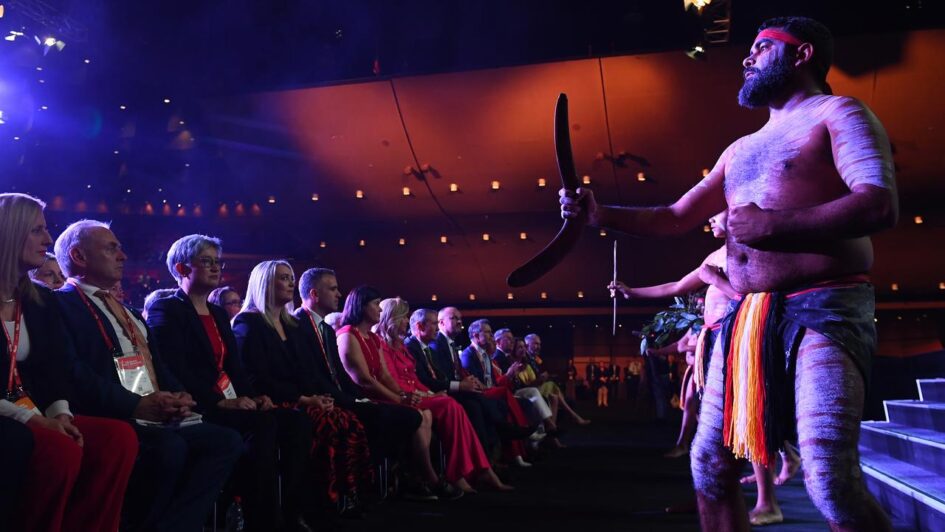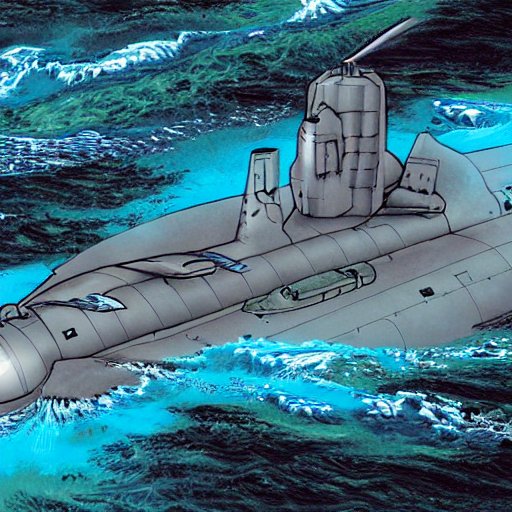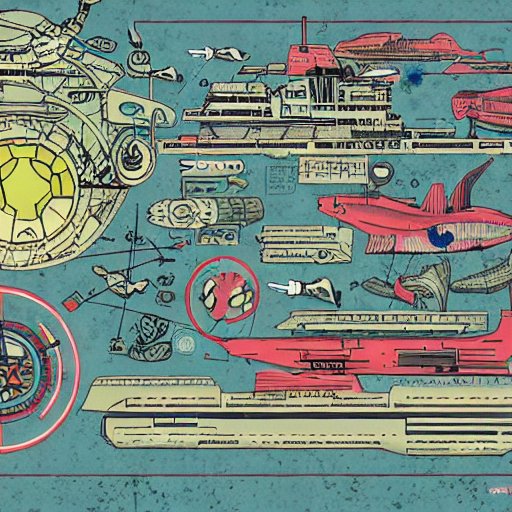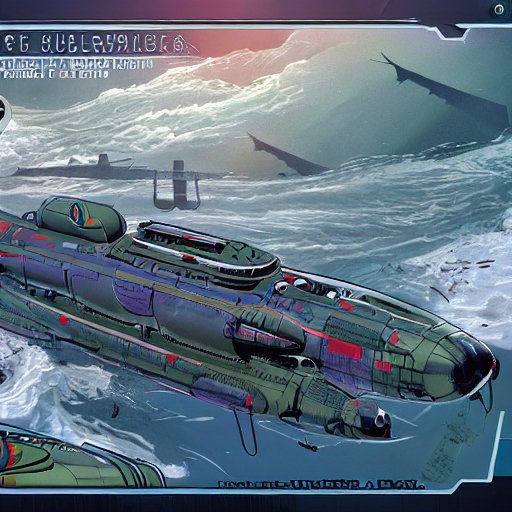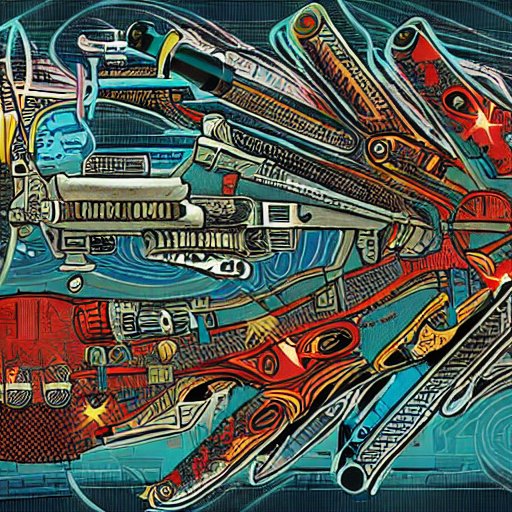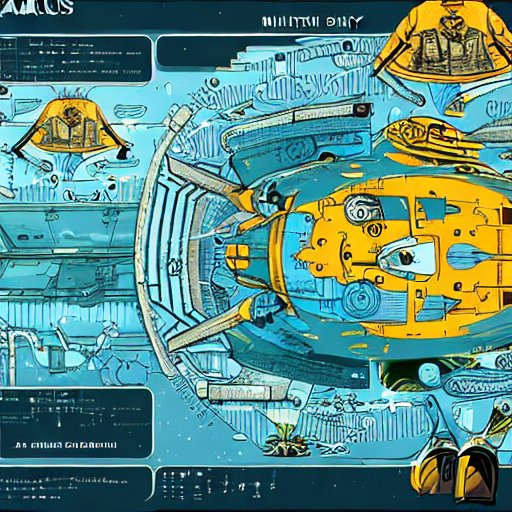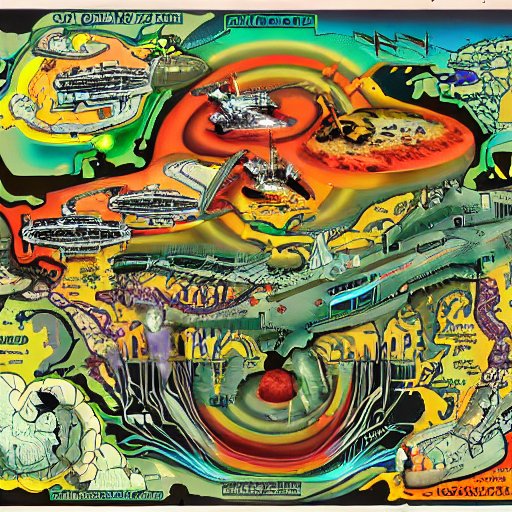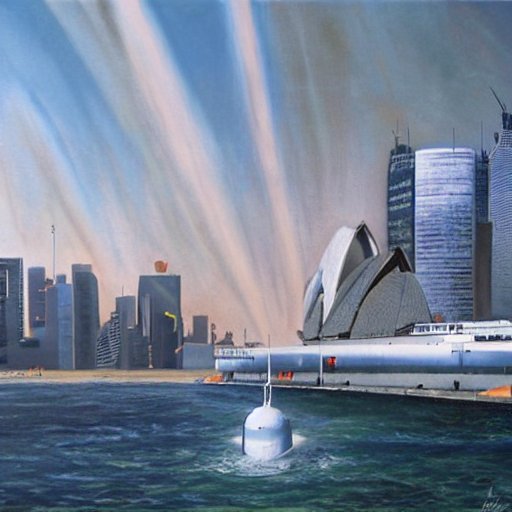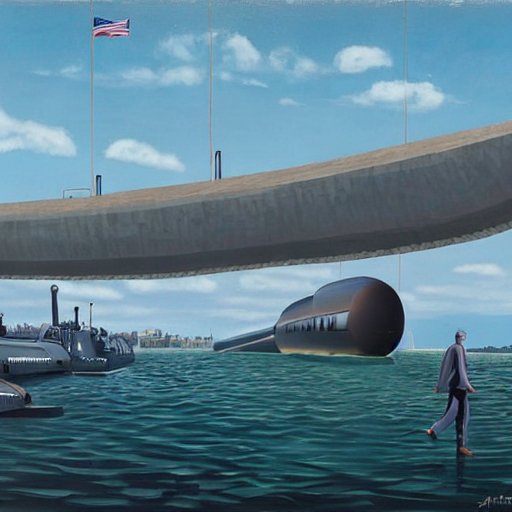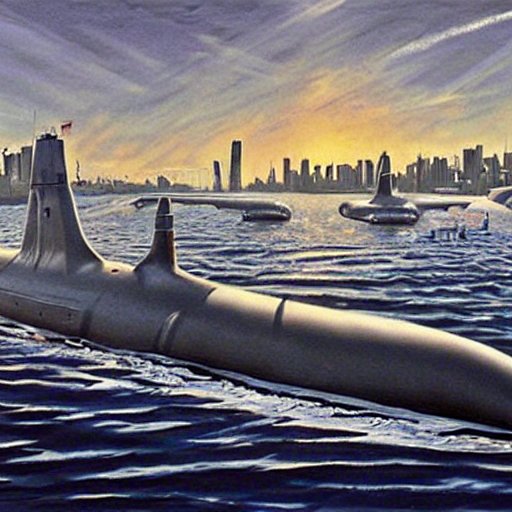By Rex Patrick: Michael West Media
At this week’s Labor Conference Defence Minister Richard Marles distributed a 32 paragraph statement for insertion into the ALP National Platform to explain the Albanese’s Government’s rationale for an incredible $368B of public expenditure on submarines. At $11.5B per paragraph, one can be left very disappointed in his words. Rex Patrick provides readers with a hard hitting paragraph-by-paragraph analysis that reveals a massive swindle.
A peaceful and secure region
- Labor believes that Australia’s interests lie in shaping a region that is peaceful, stable and prosperous. A predictable region, operating by agreed rules, standards and laws. Where no country dominates, and no country is dominated. A region where sovereignty is respected, and all countries benefit from a strategic equilibrium.
Labor is no stranger to hypocrisy when it comes to international affairs. To take but one example, West Papua is neither “peaceful, stable or prosperous”. Slow motion genocide is taking place there. Indonesia has engaged in shocking abuses of indigenous Papuans, including child killings, disappearances, torture and mass displacement of people. Hundreds of thousands of West Papuans have died in a struggle to be free of Indonesian rule.
Since becoming Defence Minister, Marles has sat down and met with his Indonesia counterpart, Prabowo Subianto on three occasions.
In the early 1990s, as the commander of Kopassus Group 3, Prabowo commanded Indonesian special forces and militias that were responsible for murder, torture and other human rights abuses in East Timor. In 1996 he led Indonesian forces in bloody reprisal actions against West Papua separatists.
In 1998 troops under Prabowo’s command kidnapped and tortured democracy activists and the General was implicated orchestrating mob violence in Jakarta against Indonesians of Chinese descent. He was banned from entry into the United States on account of his human rights abuses.
It appears some breaches of “agreed rules, standards and laws” that Marles talks about are subject to ‘looking the other way’, as is convenient.
Our Interests
- Labor is using all elements of our national power to shape the world in our interests and to shape it for the better. We will always use diplomacy as our primary effort to reduce tensions and create conditions for peace. Labor will continue to build on our strong diplomatic efforts in our region and will rebuild Australia’s international development program.
The truth is that Australia’s international development program is a drop in the budget bucket when compared to the $368B being spent on AUKUS submarines, and which goes to UK and US defence contractors.
Maintaining Peace
- Labor is committed to maintaining peace, regional development, positive relationships and stability across our region. Labor is committed to a peaceful and nuclear weapons free Pacific.
In 1984 New Zealand’s Labour Prime Minister David Lange banned nuclear-powered and nuclear-armed ships from using New Zealand ports or entering New Zealand waters. Lange’s decision was widely seen as marking a milestone in New Zealand’s development as a nation and an important act of sovereignty and self-determination.
Australian Labor wasn’t quite so inclined. Labor Leader Bill Hayden’s declaration that nuclear-powered and nuclear armed ships would not be welcome in Australian ports never came to fruition. Instead, the Hawke Labor Government ensured that the South Pacific Nuclear Free Zone was watered down and that US nuclear-armed ships could continue to visit Australian ports. Labor’s leadership has now moved to ownership of nuclear-powered ships.
Securing Australia’s Sovereignty
- Labor’s defence policy is founded on the principles of Australian sovereignty and self-reliance.
All six Collins Class submarines were built in Australia. We own the intellectual property for the Collins submarines and we conduct 92% of the sustainment work here in Australia.
With AUKUS, we abandon that sovereign capability and self-reliance, buying out first three submarines from the US. We go from being builders and sustainers, to buyers and roadside assistance.
- Building Australia’s military defence capability sits alongside our diplomatic efforts, as we play our part in collective deterrence of aggression. By having strong defence capabilities of our own, and by working with partners investing in their own capabilities, we change the calculus for any potential aggressor.
We are putting all of our Defence capability eggs in one basket, with a long term, bank breaking, monolithic program to get to the point where, at some stage in the late 2050’s, we’ll be able to keep just three submarines available for use at any time – in the context of China, Paul Keating describes this as “throwing toothpicks at the mountain”.
Alliances or Partnerships
- Defence cooperation partnerships, including with our ally the United States, are managed through robust policy frameworks and principles that maintain and protect our sovereignty. These frameworks govern the activities of foreign governments in, from or through Australia – and how we partner with other nations to acquire capabilities in line with our national interests. Australia’s Defence partnerships are anchored in Australian sovereignty.
We have gone from hosting the Pine Gap intelligence collecting facility near Alice Springs, the submarine communication station at North West Cape and participation in the Five Eye intelligence network to hosting US Marines and their helicopters in Darwin, B-52s from Katherine, US and UK submarines from Perth, U.S. Navy Maritime Patrol and Reconnaissance Aircraft from Australian air bases, pre-positioning of US Army stores and material in Victoria with a plan to establish a US Logistics Support Area in Queensland.
We’re seeing more US capability turning up on our shores. When the US engages in a conflict in the regions, we’ll have no choice but to be involved. Even if we were to refuse direct involvement, we’ll have capabilities and facilities here that will be involved in supporting US operations and they will be of (targeting) interest to the opposing side. The Joint Defence Facility Pine Gap will be intimately involved in providing intelligence to support US operations across the Pacific and Asia, including operations which will be staged from Australia.
But our forces will be directly involved, anyway. The integration and interchange marriage that’s being aggressively pursued will demand it.
Australia’s Defence partnerships isn’t anchored in Australian sovereignty, as Marles claims, it’s anchored to the US.
Sovereignty
- Labor commits that our cooperation with these partners strengthens, rather than detracts from, our sovereignty by affording us access to capability, technology, and intelligence we could not acquire on our own and provides us with an opportunity to export our defence products.
Instead of focussing on ensuring Australia has the sovereign capabilities to defend ourselves and ensure we can make our own decisions about war and peace, our Government and the ADF leadership have chosen to go ‘all the way’ with the USA.
Instead of ensuring our equipment can communicate and work alongside the US’s and other’s equipment, we’ve embarked on a course of total integration into the US Armed Forces. We’ve surrendered interoperability choice to integration and interchangeability (identical equipment) in the context of US controlled operations.
Bedrock
- Making our contribution to the collective security of our region and to the maintenance of the global rules-based order – so fundamental to Australia’s prosperity – is at the heart of Australia’s strategic intent behind acquiring a conventionally-armed, modern and fit for purpose nuclear-powered submarine capability.
The AUKUS submarine project is not about the long standing national security bedrock strategy of ‘Defence of Australia’. It’s about dovetailing the ADF into US strategy to fight a war against China in North Asia. It isn’t about defending Australian trade, it’s about acquiring the ability to strike at targets in the South China Sea, the East China Sea, the Yellow Sea and along China’s coast.
- Labor will ensure that irrespective of whether our defence assets are developed indigenously, acquired from abroad, or developed in partnership – Australia will always make sovereign, independent decisions as to how they are employed.
Australia will make our sovereign decisions within an alliance framework in which we are the minor dependent partner. When it comes to decisions about war and peace in the Pacific, Washington will act according to its global interests and its increasingly erratic and confused domestic political situation. AUKUS has handcuffed Australia to US strategy at a time when the US is less reliable as a partner than it has been at any time over the past eight decades.
Contract
- Labor will ensure that all Australian warships, including submarines, are Australian sovereign assets, commanded by Australian officers and under the sovereign control of the Australian Government.
Each and every pawn on a chess board sits alone and acts singularly, but always under the direction of the chess player. Australia’s pawns will ultimately be directed by US decision-makers.
- Labor believes that Australia’s acquisition of submarines does not involve any ante facto commitment to participate in, or be directed in accordance with, the military operations of any other country.
The idea that an Australian Government would be neutral in a conflict between the US and China over Taiwan won’t be given any serious consideration. Kim Beazley made that clear in confidential talks with the US years ago. In 2006 the then Labor leader privately told the US Embassy that “In the event of a war between the United States and China, Australia would have absolutely no alternative but to line up militarily beside the U.S. … Otherwise, the alliance would be effectively dead and buried, something Australia could never afford to see happen.”
The private thinking of Labor’s leadership is no different today, and through their embrace of AUKUS they have tightened the ties that bind immeasurably. If war comes, the only question will be how much of our still very small Defence Force will we directly commit to a high intensity conflict.
Opportunities for Australian workers
- Building submarines in Australia requires a truly whole-of-nation effort. The project to build Australia’s SSN-AUKUS submarines is projected to create around 20,000 direct jobs; see $30 billion invested in Australia’s industrial base; including infrastructure upgrades and expansion amounting up to $18 billion over the next three decades. This project will transform our skills, productivity, industrial capacity and science and research capabilities.
There’s been a big pitch on this to get Labor’s union base onside with AUKUS. However, while Marles talks big, the Government has given very few details. The Department of Defence is refusing to release its workplace study under FOI.
Jobs on the Australian Coin
- Labor will ensure that Australian workers will benefit from the massive investments in industry, infrastructure, and common user facilities. Labor will maximise opportunities for Australian manufacturers in defence tenders.
Past experience shows that Defence Department projections of Australian industry/jobs benefits are always over promised and under delivered.
What we do know is that the first thing the Government is doing is throwing $3 billion to boost US and UK shipbuilding and jobs. There are already a lot of smiling faces at General Dynamics Electric Boat at Groton, Connecticut and BAE Systems Submarines at Barrow-in-Furness.
The UK Secretary of State for Defence has trumpeting in the House of Commons that BAE is recruiting for 11,000 to 17,000 jobs in Barrow — largely on the Australian coin.
The US and the UK will be experiencing the benefits of Australian AUKUS funding well before any job creation at Osborne in South Australia.
And that $3 billion will be just the beginning. US submarine builders will soak that up like a sponge and the US will be asking for more to keep their programs on track as a condition for selling us three second-hand Virginia class subs at full market price. So, we’ll be paying a big mark-up.
Full Reverse
- Labor will work to reverse the over-reliance on private contractors in our defence knowledge, decisions and capacity.
AUKUS is a huge pot of gold for Defence contractors, consultants and highly paid Defence executives. Marles has done nothing to clear out the Defence crew that has delivered decades of procurement disasters. Things won’t change because of a sentence written in the Labor Platform.
- Labor will develop comprehensive defence industry policy to support and grow national manufacturing and local supply chains of critical defence resources, components, materiel, and infrastructure; including aligning Australia’s domestic shipping sector with Labor’s commitment to a strategic fleet. Labor will establish a tripartite industry council, including business and unions, to identify strategic manufacturing priorities in the defence industry that can be manufactured on Australian land.
In 2001 Australia entered into a joint submarine Combat System development program with the United States. On Sept 5, 2003 United States Navy Captain David Veatch, Program Manager Submarine Combat Systems, visited Australia to brief Australian industry on a bright joint development program.
Australia has since spent billions of dollars on the ‘joint’ program and not a single Australian company has got a product on US submarines.
US Navy Presentation to Australian Industry 2003
- Labor will ensure that the nuclear-powered submarine program will deliver secure, well-paid unionised jobs and establish a skills and training centre of excellence, with Australian workers trained in the latest technologies that add to Australia’s sovereign capability.
The nuclear and associated technology used in the AUKUS submarines is the intellectual property of the US and the knowledge associated with it will be locked down for use in the submarine program only. It will bring no benefit to Australia beyond the submarine capability itself. The idea that Australia will get a lot of high tech spin-offs is at best wishful thinking, and in reality, is a fraud on taxpayers.
- Labor commits that Australia’s SSN-AUKUS submarines will be built by Australian workers in South Australia, with a peak of 4,000 workers employed to design and build the infrastructure at Osborne and a further 4,000 to 5,500 jobs created to build the submarines.
Prior to AUKUS, we were to build 12 conventional submarines in Australia with construction commencing in Q3 2023. We will now buy at least three submarines from the US, more likely five. Whilst the plan is to then switch to a UK AUKUS designed submarines, cost and risk will likely see us continue buying US submarines. This is a trackway to ever deeper strategic and industrial dependence on the United States.
Jobs. It’s Always, Allegedly, About Jobs
- In Western Australia, the home of Australia’s submarine fleet, investments to expand infrastructure at HMAS Stirling will create around 3,000 direct jobs.
The Government has refused to release the workforce studies it has prepared. Their argument for withholding the information is that it’s only a draft. Defence does not know what the numbers are, or at best, are unwilling to have them scrutinised.
- In other states, investment and job creation in defence manufacturing – including the manufacturing of components and maintenance – will occur as a result of the SSN-AUKUS project. This overall national industrial workforce supporting the construction and sustainment of submarines is projected to be in the range of 6,500-8,000 jobs. Building this workforce will be a priority for the coming decades.
The lack of transparency calls into question all these big claims about job creation, and shield’s Defence and the Government from accountability, now and into the distant future.
Flag Poles
- Australia’s submarine fleet will be serviced, maintained, and upgraded by Australian workers. There will be an identification of Australian manufacturers in the supply chain in the building, maintenance and modification of all naval vessels.
There will no doubt be submarine maintenance carried out in Australia.
It is highly unlikely that Australian companies will get any products inside the already fully designed and deployed Virginia Class submarines and, if the Hunter Class Frigate is anything to go by, Australian companies will be quite unsuccessful in the AUKUS submarine design too. Like the Hunter class, we might get to supply the flag pole.
Nuclear Safety and Stewardship
- Labor will ensure that Australia continues to meet all its non-proliferation obligations and commitments under international law and retains the highest standards for nuclear non-proliferation in close cooperation with the International Atomic Energy Agency.
One would hope this is true because anything less would be a violation of our Nuclear Non-Proliferation Treaty commitments.
- Labor will redouble its efforts to strengthen the nuclear non-proliferation and disarmament regime, including the NPT. Labor will ensure Australian remains fully committed to the South Pacific Nuclear Free Zone Treaty, known as the Treaty of Rarotonga. Labor will uphold its proud history of championing practical disarmament efforts, its commitment to high non-proliferation standards and its enduring dedication to a world without nuclear weapons.
This is at best disingenuous. Labor has no forward disarmament or non-proliferation agenda. Labor’s national conference commitment to sign the Nuclear Weapons Prohibition
Treaty was written with so many caveats as to always be a dead letter and it’s well and truly moribund now in the context of AUKUS. And there’s nothing else – there are no multilateral disarmament or non-proliferation negotiations underway, and Australia isn’t doing anything to advance the cause.
Meanwhile the prospect of a new nuclear arms race is looming as China massively expands their missile arsenal. Labor has nothing to say about that development which dwarfs the supposed AUKUS contribution to deterrence.
Ports
- Labor will ensure that Australian ports retain the capacity to host nuclear-powered vessels safely, including through having appropriate plans and procedures in place to keep workers and local communities safe.
Whilst this goal is accepted, the de-facto Perth home porting of US and UK nuclear submarines in the short terms, and the ultimate stationing of Australian nuclear submarines in our own ports must invariably increase the risk of an accident.
Embarrassingly the Morrison Government and then the Albanese Government have committed to build nuclear submarines at a location – Port Adelaide – that has never been approved for visits by nuclear powered warships. It will be a bit awkward if new safety assessments indicate that location is unsuitable for visits, let alone maintenance with nuclear submarines out of the water on hardstands.
- Labor will maintain Australia’s longstanding position of not possessing or seeking to acquire nuclear weapons.
This is a binding Non-Proliferation Treaty obligation, but it is interesting that the Government is having to spend a great deal of diplomatic energy trying to reassure our neighbours about this. Defending AUKUS is a diplomatic task that will continue for decades and stifle any efforts to revive Australia’s past nuclear disarmament and non-proliferation activism.
- Labor will maintain the prohibition on the establishment of nuclear power plants. This prohibition does not apply to a naval nuclear propulsion plant related to use in a conventionally-armed, nuclear-powered submarine.
There is a bit of Animal Farm playing out here; nuclear plants on land – bad, nuclear plants on water – good.
Assurances
- Labor will ensure Australia is a responsible nuclear steward and maintains the highest level of nuclear safety in respect of nuclear-powered submarines. This includes the establishment of an independent statutory regulator, the Australian Nuclear-Powered Submarine Safety Regulator, that will be responsible for providing independent oversight and regulation of the nuclear-powered submarine program. Labor will continue to support the important work of Australia’s Nuclear Science and Technology Organisation (ANSTO) in nuclear research and medicines as a priority.
The “independent” safety regulator sits within the Defence Department and will operate with a high degree of secrecy. It will never be truly independent. This was against the advice of Australian nuclear safety experts who emphasised the need for true independence and transparency, but it appears to be a compromise to accommodate US/UK security requirements.
- Labor is committed to ensuring the management of radioactive waste and spent nuclear fuel responsibly, including through an appropriately independent regulatory system. A rigorous process will determine the site of the nuclear waste facility, on the current or future Defence estate, with appropriate public consultation and agreement with First Nations communities to respect and protect cultural heritage. Australia will not be responsible for disposing spent nuclear fuel or accept other high-level radioactive waste from any other country.
Despite four decades of effort, Australia still hasn’t selected a site for a national low level radioactive waste repository. A high level waste repository is an even more difficult project – technically and politically. Albanese, Marles and other current decision makers will likely be long retired before this aspect of AUKUS is sorted out.
Even if the issue is solved, AUKUS radioactive legacy will linger for thousands of years.
- Labor will ensure that regular updates are provided to Parliament, including relevant Parliamentary committees, and the relevant stakeholders, including defence industry, unions, and the ALP National Conference on the progress of Australia’s acquisition of conventionally-armed, nuclear-powered submarines.
The words in this paragraph are completely divorced from the reality of questions that have not been answered in the Senate and FOI’s which have been refused in full.

Defence FOI request
Governance and oversight
- Labor will ensure that a specific update on the submarine acquisition program is included in the annual defence update provided by to Parliament, allowing for Parliamentary debate to occur on this issue.
So many past Defence projects were “on time and on budget”, until their cancellation was announced.
No-one can realistically imagine that Defence will ever admit to any slippage in schedules or blowouts in cost – at least not until they’ve redefined everything to try to keep themselves looking good.
Defence secrecy has already inhibited scrutiny of repeated massive procurement failures. Defence “updates” are likely to be riddled with wishful thinking and convenient omissions.
That’s their track record. The Labor Government has no plans to reform the Defence establishment. They only have plans to throw hundreds of billions at it.
- Labor will ensure there is ongoing engagement with and oversight of the submarine acquisition program by making this the responsibility of a relevant standing Parliamentary committee.
Parliamentary Committees with Government majorities will never apply effective scrutiny, and the Senate never exercises its power to insist on the production of information that
Defence refuses to provide. Parliamentary scrutiny of defence and national security is largely ineffective.
And So it Begins
- Labor will ensure the Australian Government monitors all relevant United States and United Kingdom research and development programs into submarines including, but not limited to, programs exploring the use of low-enriched uranium in nuclear powered submarines.
Only highly enriched uranium reactors can deliver the power density necessary deliver the high speeds that the US and UK want in their submarines. Only highly enriched uranium has the capacity to deliver reactors which do not need to be refuelled half way through the life of the submarine.
- Labor will ensure that at an appropriate time, the Australian Government outlines the process and cost estimate for accommodating the permanent storage of high-level nuclear waste.
“An appropriate time” is unlikely to be in the life of the current Parliament, or the next, or
the one after that. Anthony Albanese will most likely be long retired before this gets sorted out and Australia will be paying for this long after he’s departed the scene.
And that’s the essence of a great swindle. The political tricksters will be long gone before the full bill is paid.
RELATED STORIES
Rex Patrick is a former Senator for South Australia and earlier a submariner in the armed forces. Best known as an anti-corruption and transparency crusader – www.transparencywarrior.com.au.


